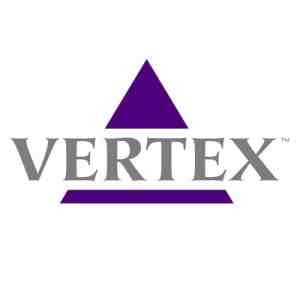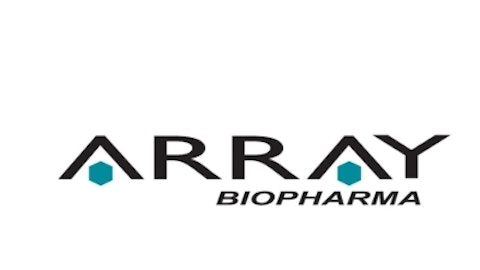Cystic fibrosis (CF), a genetic disorder that affects the lungs, the pancreas, liver, and intestine, is the second most common inherited disorder in the United States, after sickle cell anemia. More than 30,000 Americans are currently diagnosed with CF, and an average of 1,000 new cases surface annually. One in 3,700 births is believed to have the defective CF gene, and it is estimated that more than 10 million Americans are carriers.
Since CF primarily affects the lungs first, it is usually treated through antibiotics, anti-inflammatory medicines, bronchodilators and mucus-thinning medicines. Oxygen treatment and chest physical therapy (CPT) are also common treatments. However, there is no cure for the disorder.
4% is better than nothing

However, 4% is certainly a major improvement from zero, and further research from combining Kalydeco with other drugs could increase that percentage to 30%, according to the company. Due to the rarity of the mutation that Kalydeco targets, however, the drug is priced at $307,000 per year, making it one of the most expensive drugs on the market today.
In April, Vertex Pharmaceuticals Incorporated (NASDAQ:VRTX) announced that a Phase II study of its cystic fibrosis treatment VX-661 (which can be taken alone or with Kalydeco) showed statistically significant improvements in the lung function of adults afflicted with the most common mutation of the CF gene, supporting the theory that its CF treatments could soon reach well beyond the 4% of CF patients that can be treated only by Kalydeco. That statement sent shares surging 55% on April 19, and the stock hasn’t looked back since.
Kalydeco opens up a new pipeline as an old one dries up
Prior to Kalydeco’s approval, Vertex Pharmaceuticals Incorporated (NASDAQ:VRTX) relied heavily on its hepatitis C (HCV) treatment, Incivek. Although Incivek was once Vertex Pharmaceuticals Incorporated (NASDAQ:VRTX)’s blockbuster HCV treatment, generating $1 billion in annual sales after its approval in May 2011, more advanced treatments such as Gilead Sciences, Inc. (NASDAQ:GILD)’ sofosbuvir and ledipasvir (currently entering Phase III trials) now threaten to completely replace it. Although both Incivek and Gilead Sciences, Inc. (NASDAQ:GILD)’s treatments are orally administered, Incivek contains peginterferon alfa, which causes the flu-like symptoms that Gilead treatments are designed to avoid.
In an attempt to compete with Gilead and another major competitor, AbbVie, Vertex Pharmaceuticals Incorporated (NASDAQ:VRTX) attempted to produce an experimental oral hepatitis drug, VX-135, which was placed under a partial clinical hold by the FDA during its Phase II study, which revealed the potential risk for liver damage.
However, there is still hope for Vertex’s HCV treatments. In April, the company signed a nonexclusive agreement with Bristol Myers Squibb Co. (NYSE:BMY) to conduct mid-stage studies for new hepatitis C treatments. This is Bristol Myers Squibb Co. (NYSE:BMY)’s attempt to get back in the HCV race, after a promising study of an experimental HCV drug was halted last August after serious safety concerns arose.
Vertex also signed similar HCV partnerships with Johnson & Johnson (NYSE:JNJ) and GlaxoSmithKline last November to develop orally-administered HCV combo treatments.
Second quarter earnings and outlook
For its second quarter, Vertex reported a net loss of $0.26 per share, or $57.2 million, a slight improvement from the loss of $0.31 per share, or $65 million, it reported in the prior year quarter. Revenue declined 25.7% year-on-year to $310.8 million. Although Vertex’s growth was mediocre, it still topped the consensus estimate on both the top and bottom lines.
Therefore, faced with gradually declining revenue from Incivek, Kalydeco’s top line weight could increase throughout 2013. Vertex expects $345 million to $360 million of its $1.175 billion in projected annual revenue to be generated by Kalydeco. The remainder of the revenue is expected to come from Incivek sales, and its associated royalties and collaboration revenue.
Only two eggs in Vertex’s basket
Looking ahead, most of the company’s future is pegged to the future of Kalydeco. If Vertex can expand its line of CF drugs, with Kalydeco holding down the core, this company will take off very fast. However, if these variant combinations get hit by other safety concerns, the stock could give up its gains pretty quickly.
It’s clear that Vertex is aware of the risk of being exposed to only two drugs – one that is fading fast and another one that could become an industry-altering blockbuster. Therefore, the company is spending heavily to diversify its pipeline into other treatments, most notably influenza with its experimental drug VX-787.
A prime takeover target
With a potential blockbuster drug in its portfolio, Vertex is often cited as a prime takeover target for larger pharmaceutical companies. Last year, a rumor circulated that Johnson & Johnson, Bristol-Myers Squibb and Gilead Sciences were all interested in acquiring the company.
Many analysts, such as those from Credit Suisse, believed that Johnson & Johnson was the most realistic suitor, since the two companies partnered up back in 2006 to develop and market Incivek in Europe and other markets. As part of that deal, Johnson & Johnson paid Vertex an initial payment of $165 million and followed it up with further licensing and milestone payments. Those continuing payments could be negated if Johnson & Johnson acquires Vertex.
However, considering that Incivek sales are expected to drastically decline over the next few years, that dated argument doesn’t seem to carry much weight. Moreover, Vertex is already locked in a partnership with Johnson & Johnson in its aforementioned HCV research partnership.
Gilead and Bristol-Myers Squibb, on the other hand, could still be interested, considering that Vertex still has a key foothold in the experimental HCV market.
The Foolish Bottom Line
Vertex Pharmaceuticals is an exciting company to follow. It stands at a crossroads, and its treatments for cystic fibrosis could change the world. In addition, declining sales of Incivek can still contribute to its top line and buy it some more time to increase its CF research, and other experimental treatments.
Although Vertex is unlikely to achieve profitability anytime soon, investors are still expecting big things from the company – that’s why the stock has risen 65% over the past twelve months even though it lacks any real fundamental scaffolding.
Leo Sun has no position in any stocks mentioned. The Motley Fool recommends Gilead Sciences, Johnson & Johnson, and Vertex Pharmaceuticals. The Motley Fool owns shares of Johnson & Johnson.
The article This Biotech’s Cystic Fibrosis Treatments Could Catapult It To Profitability originally appeared on Fool.com and is written by Leo Sun.
Leo is a member of The Motley Fool Blog Network — entries represent the personal opinion of the blogger and are not formally edited.
Copyright © 1995 – 2013 The Motley Fool, LLC. All rights reserved. The Motley Fool has a disclosure policy.




